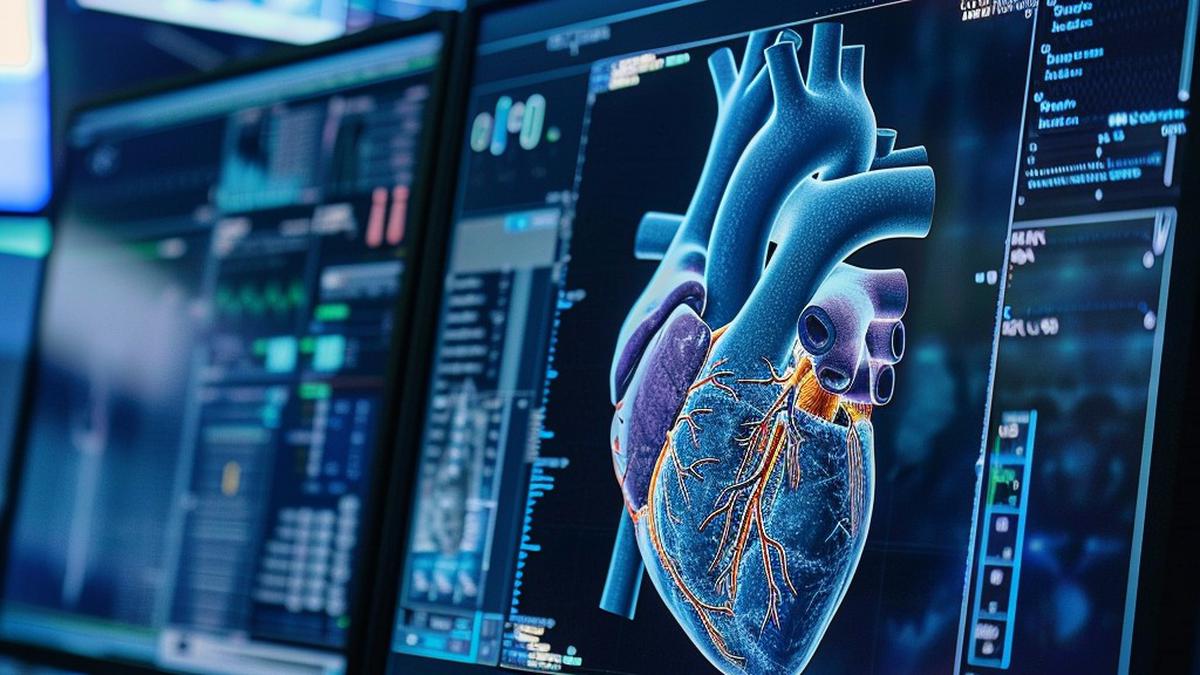
Artificial Intelligence in Cardiac Imaging: How AI Improves the Accuracy and Efficiency of Diagnosing Heart Conditions
The Hindu
Artificial Intelligence in Cardiac Imaging: How AI Improves the Accuracy and Efficiency of Diagnosing Heart Conditions
Artificial intelligence (AI) is a rapidly evolving field with a massive presence and applications in numerous industries, such as education, manufacturing, finance, e-commerce, transportation, cybersecurity, and even healthcare. In healthcare, AI can analyze data a lot faster than humans do, maintain records perform other routine tasks, and assist with surgeries and imaging tests. This post focuses on AI in cardiac imaging and discusses its accuracy and effectiveness in diagnosing cardiovascular diseases.
Artificial intelligence can revolutionize cardiac imaging and make it easier to diagnose heart conditions. Various studies and papers have been published on this subject. One of the most recent papers was published in May 2023 in the British Institute of Radiology Open, and it explained the main objective for AI algorithms would be to embed them into the routine cardiac image analysis and reporting software. This would allow for performing measurements and calculating risk scores in real-time. As a result, AI algorithms could act as clinical decision-support tools for physicians.
The abovementioned paper discussed applications of AI in the following areas of cardiac CT:
The use of AI in cardiovascular imaging has been a subject of many other papers, which showed the positive impact of machine learning, deep learning, and other techniques on imaging and prediction of adverse outcomes. One paper reported that a deep learning algorithm performs view classification with the same accuracy as a board-certified echocardiographer. The same review reported that AI is effective for the classification or diagnosis of cardiac pathologies such as myocardial infarction, mitral regurgitation, athlete’s heart, and hypertrophic cardiomyopathy.
An article from the European Heart Journal confirmed that AI is vital for the identification, quantification, and characterization of cardiac disease. What makes AI so important for cardiac imaging is that it rapidly and accurately provides a more comprehensive description of a patient’s cardiovascular health. As a result, AI allows for better decision-making and thereby helps improve patient outcomes.
Since the improvement of patient outcomes is the main objective in healthcare settings, we can expect more and more hospitals and clinics to implement AI techniques in cardiac imaging. Doctor.Global is a practical guide through different hospitals across the globe and the services they offer.
Applications of artificial intelligence in healthcare, especially cardiac imaging, are numerous and they offer a wide range of benefits. The most important benefits of using AI in cardiac imaging include:





















 Run 3 Space | Play Space Running Game
Run 3 Space | Play Space Running Game Traffic Jam 3D | Online Racing Game
Traffic Jam 3D | Online Racing Game Duck Hunt | Play Old Classic Game
Duck Hunt | Play Old Classic Game











